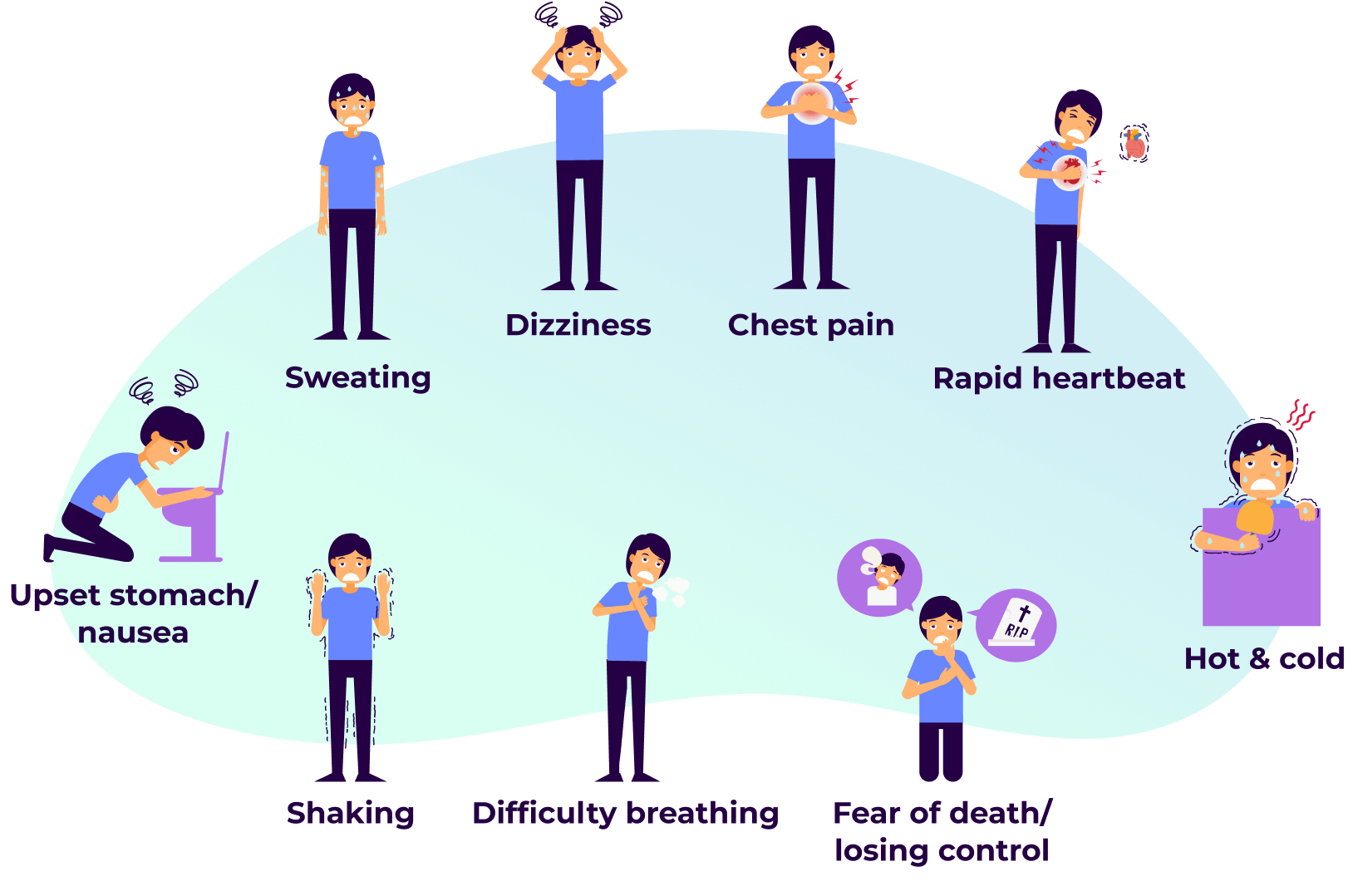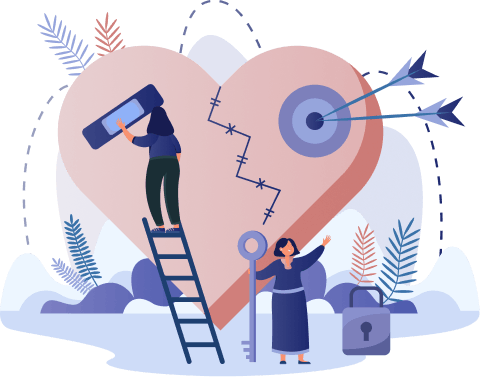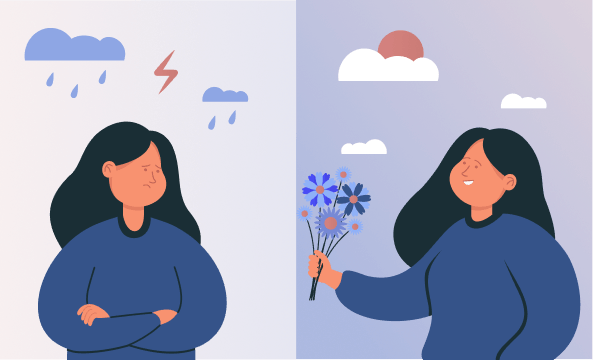Coping with Panic Attacks

You can personalize the Coping with Panic Attacks resource by downloading it HERE, and adding your own responses, or continue to view it below.
Panic attacks occur when our bodies go into “fight or flight” mode, to the point that our nervous system is overwhelmed. Panic attacks can arise when we are triggered by something specific or seemingly for no reason at all. Things that can contribute to panic attacks include: major life stress, traumatic event(s), substance use, family history of anxiety disorders, and other medical and mental health problems. When panic attacks are repetitive and begin to interfere with day to day life, a therapist or prescriber may diagnose this as Panic Disorder. This resource is not intended to diagnose or treat Panic Disorder, but can be a helpful tool to understand and cope with panic attacks; particularly when used alongside a licensed mental health professional.
Common Symptoms of a Panic Attack

Common Signs of Panic Disorder
- Avoiding people, places, or situations where we previously experienced a panic attack
- Severe anxiety that a panic attack will happen again
- Structuring our day around avoiding the possibility of a panic attack
- The panic attacks are not caused by substance use, medication, or another illness
What to do in a Panic Attack

Managing Panic Attacks
Identify Triggers

- Identify your triggers and make a plan to cope with these triggers in the future. Tip: practice the coping skills mentioned above, ahead of time, so they become more automatic
- See Trigger Log
Challenge Fear

- Challenge your fear by asking yourself questions like:
- How likely is it that my fear will come true?
- What evidence do I have that this fear will come true?
- What’s the best case scenario?
- See Managing Worry
Face Fear

- As challenging as it may be, face the things you fear. Avoiding people, places, and situations that make us anxious only prolong anxiety, and make panic attacks more likely in the future.
- Facing our fears can help us desensitize the anxiety (that is at the core of panic attacks) over time, and ultimately reduce the number and severity of panic attacks.
- See Opposite Action
Therapy and Medication

- Seek talk therapy and/or medication - working with a therapist and/or prescriber can help you create an individualized plan to cope with and reduce panic attacks.
Reflection
Taking some time to get curious about our experience, in a non-judgmental way, can help us be proactive in managing panic attacks. This can include setting time aside to practice coping skills, so they are readily available when needed.
- What are the signs and symptoms that I am having a panic attack?
- Which grounding exercise(s) are the most effective for me when I am experiencing a panic attack? And when can I set aside some time to practice them outside of a panic attack?
- Who can I call to support me during a panic attack?
- What were my thoughts, emotions and behaviors before my last panic attack?
- What are some strategies I can use to decrease the fear of having another panic attack?
Additional Resources
Call 911 if you’re having a
mental health emergency
Text Home to 741-741 if you're in emotional
distress and need immediate support
Call or text 988 Suicide &
Crisis Lifeline. Chat service
is available at 988lifeline.org.